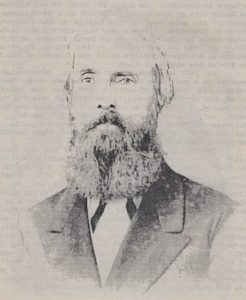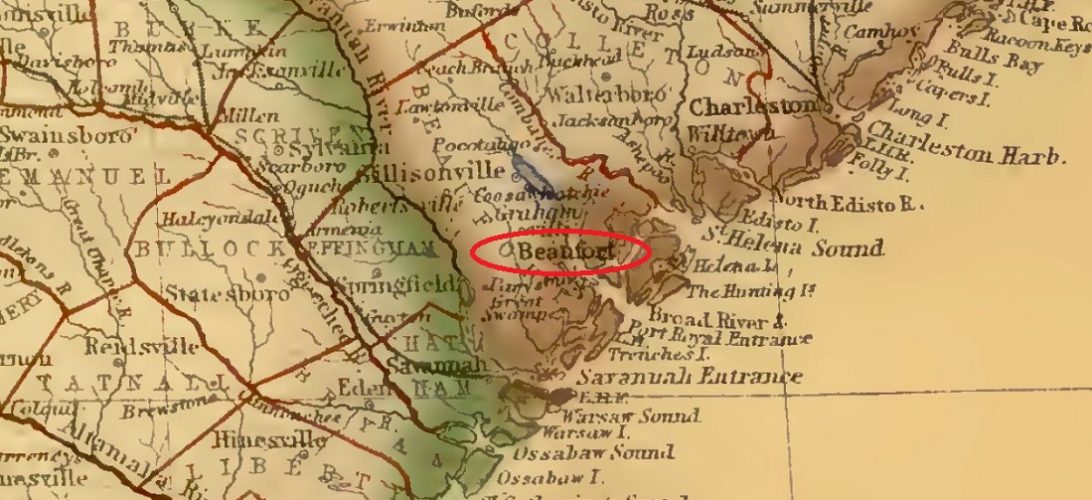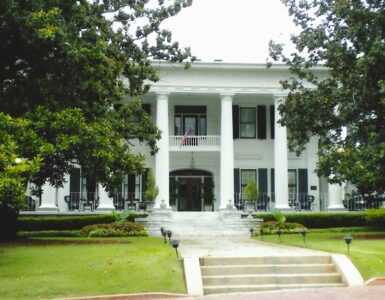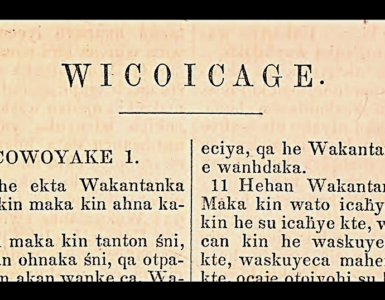 Edwin Cater was born in the scenic South Carolina Low Country in Beaufort County, November 1, 1813. He was orphaned at a young age, so the family of his uncle, Rev. Richard Cater, took him in and saw to his needs. Rev. Cater was pastor of the Presbyterian Church in Barnwell. At the age of fifteen Edwin made a profession of faith and became a communing member of his uncle’s church. At seventeen, he entered Franklin College in Athens, Georgia (University of Georgia) then graduated in 1834 with two classmates that would also become Presbyterian ministers. One was a fellow South Carolinian, James F. Gibert, of Huguenot descent; the other classmate was Georgian James H. Saye. Gibert would have an extended ministry in the Lebanon Church in Abbeville, 1837-1883, and J. H. Saye would serve several churches in Georgia and South Carolina. Edwin Cater taught school briefly before pursuing his call to the ministry through studying divinity at Columbia Theological Seminary where he was joined by Gibert and Saye to make up half the class of 1837.
Edwin Cater was born in the scenic South Carolina Low Country in Beaufort County, November 1, 1813. He was orphaned at a young age, so the family of his uncle, Rev. Richard Cater, took him in and saw to his needs. Rev. Cater was pastor of the Presbyterian Church in Barnwell. At the age of fifteen Edwin made a profession of faith and became a communing member of his uncle’s church. At seventeen, he entered Franklin College in Athens, Georgia (University of Georgia) then graduated in 1834 with two classmates that would also become Presbyterian ministers. One was a fellow South Carolinian, James F. Gibert, of Huguenot descent; the other classmate was Georgian James H. Saye. Gibert would have an extended ministry in the Lebanon Church in Abbeville, 1837-1883, and J. H. Saye would serve several churches in Georgia and South Carolina. Edwin Cater taught school briefly before pursuing his call to the ministry through studying divinity at Columbia Theological Seminary where he was joined by Gibert and Saye to make up half the class of 1837.
Seminary degree in hand, Cater was ordained in 1837 by South Carolina Presbytery for a call to the Anderson Court House Presbyterian Church (First Church, Anderson) where he also supplied the Rocky Creek Church near Abbeville half time beginning in January 1838. The following spring he resigned the call to Anderson and dedicated himself full time to the Rocky Creek congregation until his resignation in the fall of 1846. It was during these early years of ministry that he married Sarah M. Leland in 1838. Sarah was the daughter of one of Cater’s professors at Columbia Seminary, Aaron W. Leland. As has been seen in other ministers’ biographies on Presbyterians of the Past, it was not uncommon for a seminary student to marry a daughter of one of his professors. Surely, a lady on campus would draw the attention of many of the young seminarians to courting.
Edwin Cater remained in his home state of South Carolina for the first years of his ministry. In 1846, he was called to the Lebanon and Salem churches in Fairfield District for a call that continued for four years. As was sometimes the case for ministers whether Presbyterian or not, Edwin Cater left full-time pulpit ministry to work in education to teach in the Bradford Springs Female Institute in Sumter District. He returned to a full-time pastoral call when he relocated to Mt. Pleasant near Charleston and labored outside the bounds of presbytery in the Wappetaw Congregational Church, 1853-1860. The Wappetaw Church was burned by the British during the Revolutionary War, then rebuilt, but would be abandoned during the Civil War with its remaining members organizing Presbyterian churches in Mt. Pleasant and McClellanville. It was during his ministry at Wappetaw that his family was greatly saddened by the death of Sarah from yellow fever. But by the time he left Wappetaw he married his second wife, Margaret R. Barr, the daughter of the pastor of Upper Long Cane Presbyterian Church, Rev. William Hampton Barr.
Because of poor health Cater moved his family from the coastal region of South Carolina with its heat, humidity, and mosquitos to the cooler north-western area of the state to live in Spartanburg for about a year. The Caters continued their relocations further west in the South settling in Somerville, Tennessee, for a ministry in First Presbyterian Church, 1860-1865. At some point during the War, possibly around the time of the fall of Memphis in June 1862, he briefly supplied churches in Alabama at Demopolis and Livingston. Somerville is near Memphis and he may have thought that the family would be safer during the war if they lived away from the strategic and important port city on the Mississippi River.
In 1867 the Cater household began another series of moves as he found ministry opportunities in Mississippi, Louisiana, and Florida. He accepted a call to the churches of Scooba and Macon in Mississippi. However, after a few years with the dual-call he moved to the College Hill Church near Oxford for a tenure of seven years. After Oxford a move to Louisiana provided a brief ministry of two years in Opelousas and Vermillionville. The family returned to Mississippi to the First Presbyterian Church in Yazoo City beginning in 1878 and continued there until he resigned in March 1881.
Having experienced many moves over the years, Cater relocated once again, this time to Florida. In the late nineteenth century Florida was already becoming a haven for Americans in their senior years. He moved in April 1881 to Gainesville to live with his son, Professor E. P. Cater, who may have taught for the University of Florida. Cater transferred his ministerial credentials to the Presbytery of St. Johns in October. He tried to serve his presbytery in churches as he had opportunity, but because of feeble health he could not supply pulpits very often. On May 1, 1882, he left Gainesville and returned to Somerville to live with his daughter, Mrs. E. W. Smith, and her husband. The fatigue of travel so weakened him that he was unable to recover. After a few days of continued decline he passed away at 5:00 in the afternoon of June 13, 1882. His funeral service was held June 16 in the church he had served in Somerville. The service was led by its pastor, William S. Cochran with the assistance of E. K. Bransford pastor of the Methodist Episcopal Church, South. Pastor Cater was buried in Somerville. Other than the son and daughter mentioned, information regarding other survivors was not located nor the date of his wife Margaret’s death.
Edwin Cater had two articles published in The Southern Presbyterian Review. The first is “A Plea in Behalf of the Widows and Orphans of Deceased Ministers of the Presbyterian Church in the United States,” 20:2 (April 1869), 181-193, and the second article is titled, “Geological Speculation,” 10:4 (January 1858), 534-573. He also published a pamphlet titled, The Appeal of Rev. Edwin Cater, Pastor of the College Church, North Mississippi Presbytery, to the Candid Judgment of the People of God against the Assaults made upon Him on the Floor of General Assembly at Huntsville, Ala., in May 1871, and Repeated in Newspapers, and in the Southern Presbyterian Review, for October, 1871, (College Hill: Printed for Rev. Edwin Cater, 1871), 31 pages.
Barry Waugh
Notes—Rev. Robert Milton Winter of Holly Springs has published Outposts of Zion: A History of Mississippi Presbyterians in the Nineteenth Century, 2014, which has additional information about Rev. Cater’s years in Mississippi. The image of the portrait was provided by Rev. Charlie Wingard of First Church, Yazoo City. With reference to Mrs. Cater’s death from yellow fever, the biography of George D. Armstrong, 1813-1899, on Presbyterians of the Past tells about his experiences with a yellow fever epidemic in Virginia.
Sources—The key source for biographical information was Memorial Volume of the Semi-Centennial of the Theological Seminary at Columbia, South Carolina, Columbia: Printed at the Presbyterian Publishing House, 1884, pages 240-242. Some information regarding Cater’s last weeks of life was obtained from his obituary in the Public Ledger, June 16, 1882, which was published in Memphis and is available online at the Library of Congress website.





